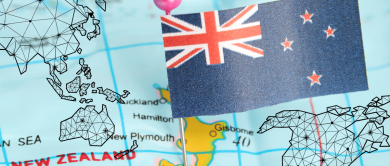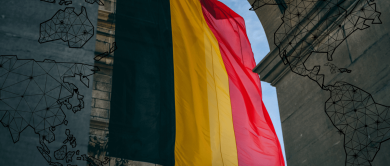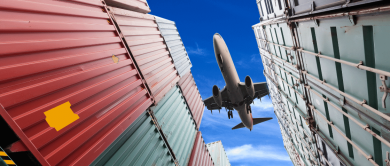Even though some imports into Taiwan could be comparably simple, the import procedure for telecom and electronic devices is somewhat trickier. We’ll guide you through it.
Overview of Taiwan’s industries and economy
Taiwan is a prosperous nation, Asia’s eighth and the world’s eighteenth largest economy. IMF has classified it into the category of advanced economies. As the economy is growing phenomenally, IOR Service has much potential in the Taiwanese market.
Taiwan has cutting-edge technology as it is the world’s most technologically sophisticated chip-set maker. Its also the world’s top producer of Dynamic random access memory (DRAM), LCD panels, consumer electronics, and networking gear.
The top hardware manufacturers in Taiwan are Pegatron, TSMC, Foxconn, HTC, Acer, and Asus. Telecommunication, utilities, and financial services are 3 of the best-paying industries in Taiwan. These industries support the growth of high technology, a service-oriented economy, and a variety of trade marketplaces.
Taiwan not only sees significant revenue in commerce with Asian Giants like Japan, China, and Hong Kong, trade pacts with the EU and the United States are quite beneficial to it too.
Procedural guide for an importer of record service in Taiwan
It’s really simple when it comes to importing goods into Taiwan. Import of most commodities doesn’t require licenses or permits; the primary exceptions include things connected to public cleanliness, ammunition, items related to the military, some plants, animals, and agricultural products. There is a ban on Chinese-made medical equipment and chocolate.
Even though imports are generally unregulated, Electronic items are strictly regulated. The Bureau of Standards, Metrology, and Inspection (BSMI) is a division of the Ministry of Economic Affairs. It’s in charge of conformity evaluation. Also, it builds, compiles, and publishes the National Standards of the People’s Republic of China (MOEA). Under Taiwan’s Commodity Inspection Law, (BSMI) also carries out procedures related to commodity inspection.
BSMI certification (System Of CNS Mark Certification)
BSMI invites applications for certificates issued after the items are judged to be under the relevant standards. It is accessible to applications from foreign manufacturers.
Evaluation of quality management systems and products
The quality management system of a company is assessed to attain a CNS Mark, and products are tested against relevant national standards. This assessment is carried out by The BSMI or BSMI-authorized certification agencies. The BSMI, testing labs, or organizations commissioned by BSMI may conduct product testing.
The following quotes are drawn from articles the MOEA has published:
The provisions of Article 3 of the Regulations Governing the CNS Mark (hereinafter referred to as “the Regulations”) state the following requirements of the Certification System:
(i) The quality management system (hereinafter referred to as “QMS”) of the factory is certified against CNS 12681 (ISO 9001) by quality management system certification bodies that are located in Taiwan or the same country as the factory and recognized by the BSMI (hereinafter referred to as “the BSMI-recognized QMS CBs”), and the product is tested to comply with relevant CNS; or
(ii) The factory obtains factory reports from BSMI or the factory inspection bodies located in Taiwan or the same country as the factory that is recognized by the BSMI (hereinafter referred to as “the factory inspection agency/bodies”) and the product is tested to comply with relevant CNS.
It’s mandatory to show the BSMI certificate to customs by the IOR service.
CTRFDs (Controlled Telecommunication Radio-Frequency Devices), including WiFi and Bluetooth
In Taiwan, NCC, i.e., The National Communications Commission, oversees broadcasting and telecommunications services, plus controlled radio-frequency equipment (CTRFDs).
The NCC’s four objectives are:
- Encourage the effective growth of communications
- Safeguarding people’s rights
- The defense of consumer interests
- Increase multiculturalism
The administrative guidelines of NCC are comprised of these four policy objectives.
Before being allowed for sale in Taiwan, products using WiFi(Wireless Fidelity) and/or Bluetooth have to pass through stringent testing and approval procedures. All Radio Frequency Identification (RFID), Long Term Evolution (LTE), and Global Mobile Radio Systems (GMS)are included in this mandate. Pre-testing of goods is required by a testing facility that the NCC has approved.
It’s mandatory to affix NCC logo to the device’s labels once certification has been obtained.
The import taxes in Taiwan
Taiwan’s VAT rate is fixed at Five Percent of The C.I.F. Price (i.e., cost, insurance, and freight price)
Importer Solutions identify permissible exemptions that can be applied to allow the import of goods for clients who lack the time, money, or staff for these expensive and time-wasting licenses and certificates. IOR service can take advantage of these exemptions in the overall import process. Though a tricky procedure, the importer of record service can enjoy a lot of financial success in the Taiwanese market.
Looking for a IOR logistics partner in Taiwan? Contact our IOR logitiscs specialist for more information or you can call us directly on our toll free number.
















